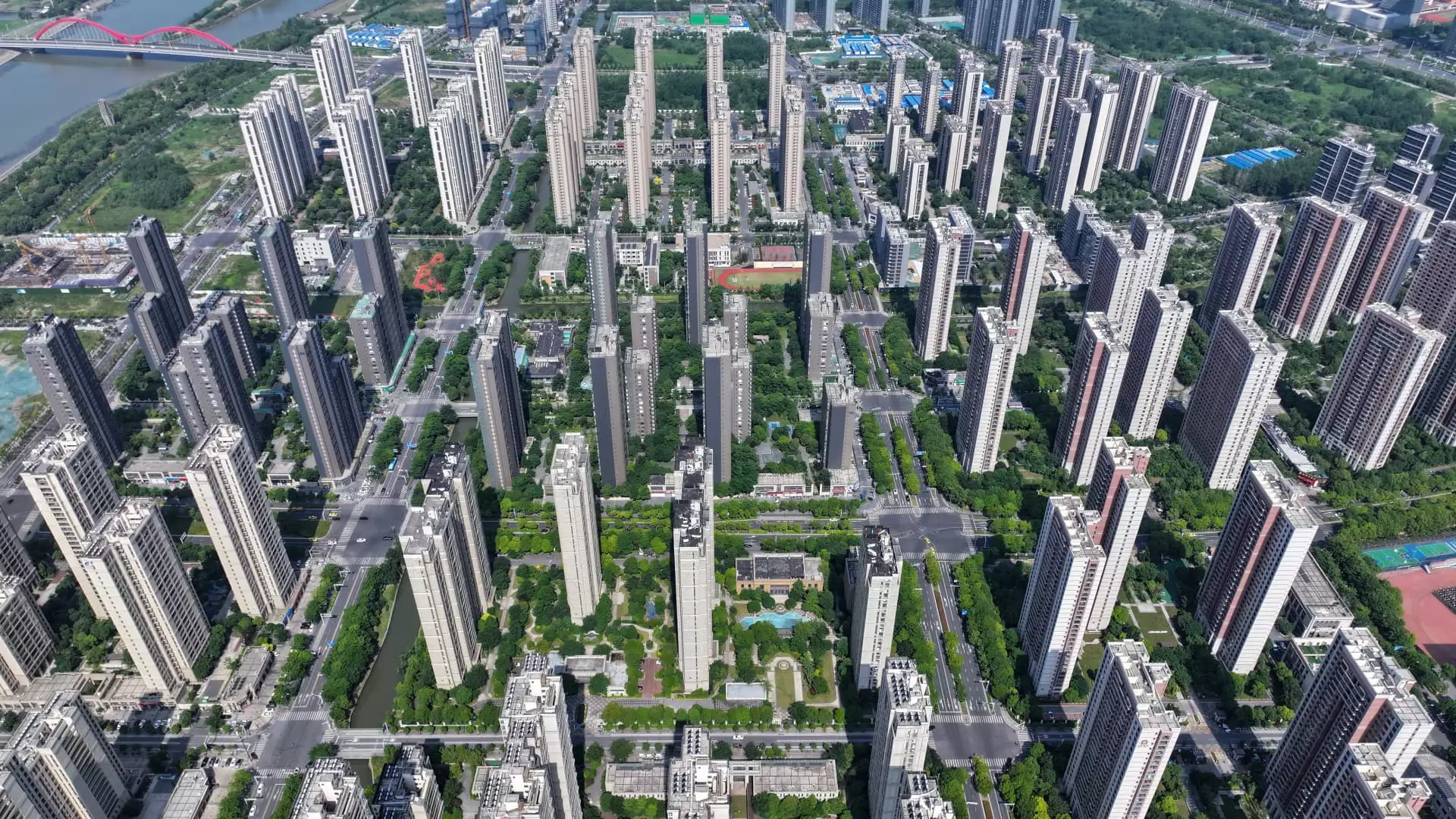The landscape of Hong Kong’s property market is witnessing a notable rebound, with many Chinese property stocks recouping losses and hitting heights not seen for over a year. This resurgence is primarily attributed to ongoing stimulus efforts within the Chinese economy aimed at revitalizing various sectors, particularly real estate. Major players in the real estate sector, such as Longfor Group Holdings, have recorded a remarkable increase, with shares climbing over 25%. Such upward momentum is bolstered by announcements of supportive government policies and market adaptations that encourage home buying, a significant aspect of economic revitalization.
The rise in property stocks is not isolated to Longfor; other developers have also reported significant gains. Shimao Group’s shares skyrocketed by an astonishing 87%, while Kaisa Group saw a jump of more than 40%. Similarly, China Overseas Land & Investment and China Vanke have exhibited substantial price increases, marking notable recoveries since last year. Importantly, this trend reflects a broader positive sentiment permeating the market. The Hang Seng Index’s overall rise of 6% aligns with the Mainland Properties Index’s striking gain of over 14%, signaling investor confidence amidst a tumultuous period.
While the gains are promising, it is essential to interpret them cautiously. Analysts have pointed out that the real estate sector remains under significant stress, with lingering challenges that could hinder long-term stability. The Mainland Chinese markets are currently closed for the Golden Week holiday, temporarily halting the momentum that has been building in recent days. This holiday provides a moment for investors to reassess market dynamics and prospective strategies as trading resumes.
In light of the economic challenges faced by the property market, major cities in Mainland China have introduced several measures aimed at boosting homebuyer confidence. These steps, which include the removal of previous purchase restrictions in Guangzhou and tax breaks in Shanghai, are designed to encourage home ownership and stimulate demand. However, experts from Morgan Stanley caution that while these moves can stabilize prices, a true revival in buyer interest may be more difficult than anticipated. They underline the likelihood of a continuing shortfall in demand, which hampers growth and may inhibit recovery efforts.
Historically, real estate has been a linchpin of China’s economy, accounting for over 25% of its GDP. However, the sector has been grappling with challenges since 2020, following regulatory crackdowns aimed at curbing excessive debt accumulation among property developers. Efforts from Chinese officials to alleviate financial strain on households and stabilize the housing market have been numerous but lack any substantive turnaround. As the market evolves, stakeholders must remain vigilant and proactive to navigate the complexities ahead.
As the dust begins to settle post-holiday, market fluctuations will serve as critical indicators of sustained recovery. While the recent performance of property stocks is encouraging, it is essential for investors to approach with a balanced perspective. The potential for policy shifts and market adaptation is significant, but the path towards lasting stability remains fraught with uncertainties. Ultimately, the next steps taken by both government entities and market players will determine the sustainability of this recent climb, as they grapple with the residual effects of previous turmoil.

